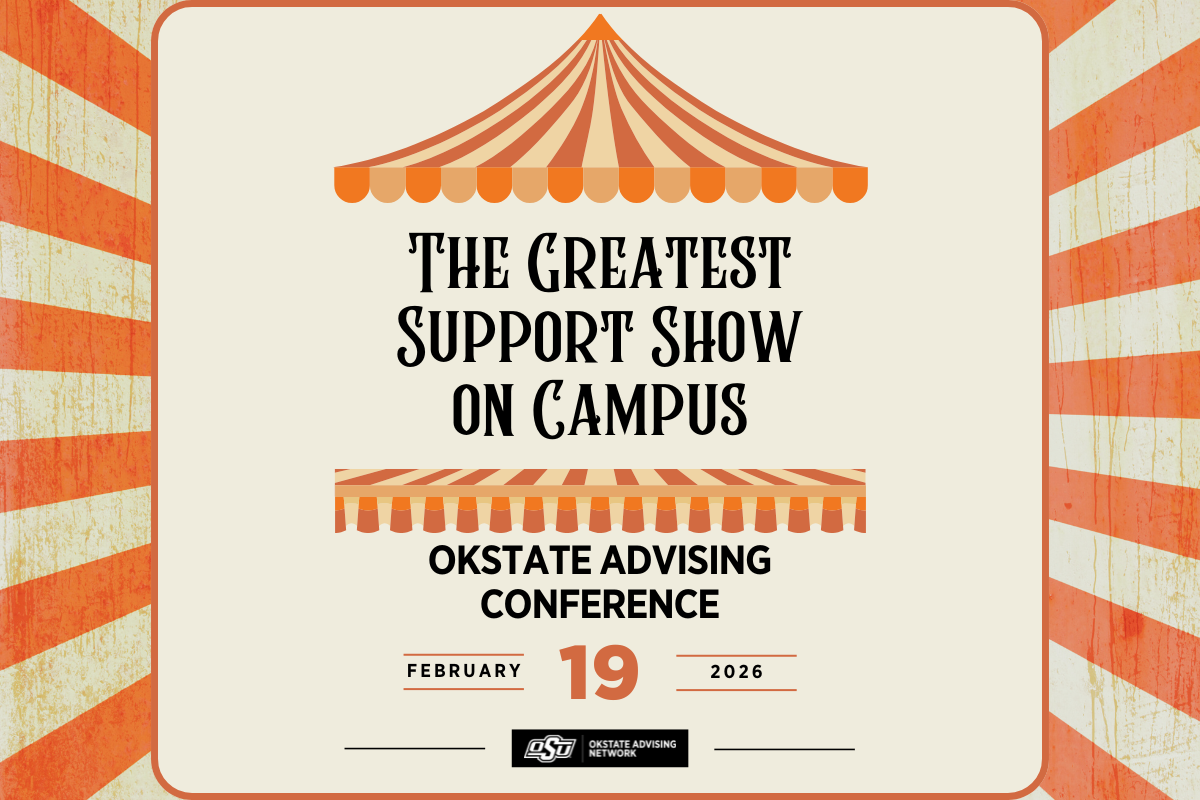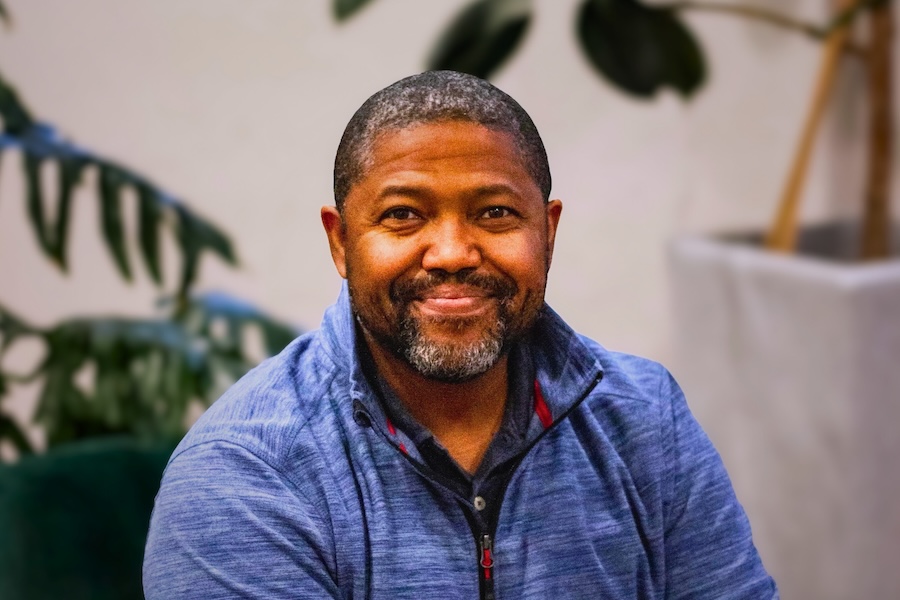OKState Advisor Conference
Registration is closed

Keynote speaker: Les Thomas Sr.
Les Thomas Sr. is a retired U.S. Air Force veteran, music artist, graduate of Leadership Oklahoma and Executive Director of Community Engagement at Urban Bridge in Oklahoma City. Known as the high-energy game-day hype man for Oklahoma State University football and basketball, Les brings joy, purpose and passion to everything he does.
A best selling author of "Three Levels of Influence" and a TEDx speaker, he's dedicated his life to helping others find fulfillment through faith, leadership and laughter. Whether in front of 60,000 fans or a room of leaders, Les reminds audiences that true success is doing what you love—and having fun while doing it.

Learn more about Les on his website.
Keynote speaker: Derrick Sier
Over the last 20-plus years, Derrick's passion for social and group dynamics has permeated every area of his life, but it shines brightest in mentorship. With his B.S. in Kinesiology (Recreation Management), M.A. in Theological Studies and experience in community and culture within education and corporate settings, Derrick has helped organizations recruit and equip mentors, implement mentorship programs and create safe spaces for mentors and their mentees to connect. In addition to his heart for mentorship, he is a husband, father, golfer, and gardener, an avid hugger and is driven by his faith to live a life full of laughter and love.

| Activity | Time | Room number |
|---|---|---|
| Check-in, Coffee Bar, Light Breakfast | 8 - 8:45 a.m. | Starlight Terrace, 465 |
| Introductions | 8:45 - 9 a.m. | Starlight Terrace, 465 |
| Keynote | 9 - 9:45 a.m. | Starlight Terrace, 465 |
| Break | 9:45 - 10 a.m. | |
Support Services Fair Carnival Chaos (Game Room) The Ringmaster's Retreat | 10 - 10:45 a.m. | Outside Case Studies and Exhibit Rooms Oklahoma Room, 450 Starlight Terrace, 465 |
| Reconvene for breakout sessions | 10:45 - 11 a.m. | Starlight Terrace, 465 |
| Session one | 11 - 11:45 a.m. | |
| Lunch | 11:45 a.m. - 1 p.m. | Border Street Tacos by the Starlight Terrace |
| Break | 1 - 1:15 p.m. | |
| Session two | 1:15 - 2 p.m. | |
| Break | 2 - 2:15 p.m. | |
| Session three | 2:15 - 3 p.m. | |
| Break | 3 - 3:15 p.m. | |
| Closing and Door Prizes | 3:15 p.m. | Starlight Terrace, 465 |
Breakout sessions
11 - 11:45 a.m.
Sarah Ayres
Time: Helping Students Make Decisions Every Day
Location: Case Study 1, Room 408
Brie Bradshaw
Time: I Really Meme It! Student Connections with Memes
Location: Case Study 2, Room 416
Matt Williams
Time: Developing a Holistic Perspective of Advisees through their "My OSU Connections Profile"
Location: Exhibit Room 1, Room 413
1:15 - 2 p.m.
Caitlin Laughlin
Time: Beyond Pre-Med: A Quick Guide to Pre-Health Paths
Location: Case Study 1, Room 408
Dr. John Andrews
Time: Read Yourself In: Belonging through Place As Text
Location: Case Study 2, Room 416
Chelsea McElroy
Time: Let's Play, Will the VA Pay?
Location: Exhibit Room 1, Room 413
2:15 - 3 p.m.
Sarah Chabinak
Time: The Lazy Genius Way to a High-Wire Advising Act
Location: Case Study 1, Room 408
Melissa Cooper
Time: Journeys of Transformation: Navigating Change
Location: Case Study 2, Room 416
Brie Bradshaw, Randy Kitchens, Kelli Leech and Kimberly Meints
Time: Meet Cowboy Charlie, the AI Chatbot for Freshmen
Location: Exhibit Room 1, Room 413
Conference committee
- Co-chairs and Keynote Speaker Co-coordinators
- Chico Harring - Proposal & Program Co-coordinator and Volunteer Co-coordinator
- Ashleigh Snell - Proposal & Program Co-coordinator
- Samantha Willis - Communications Coordinator
- Lucy Berger - Outreach & Service Opportunity (Community Engagement) Co-coordinator
- Mary Francis - Evaluations & Best of OKState Coordinator and Volunteer Co-coordinator
- Jennifer Harris - Hospitality Co-coordinator
- Riley Humphrey - Hospitality Co-coordinator
- Angel Ray - OKState Advising Network, President
- Mia Reinert - Outreach & Service Opportunity (Community Engagement) Co-coordinator
